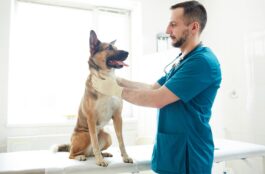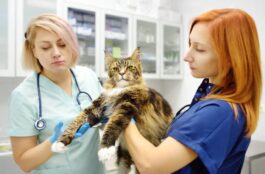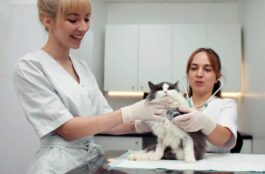
As our furry friends age, the thought of them undergoing surgery can be a worrisome ordeal for any pet owner. Our geriatric companions hold a special place in our hearts, and their well-being is always a top priority. Let’s face it: as animals get older, they often face a variety of health issues. Sometimes, surgery becomes necessary, even for the eldest of pets. But can senior pets handle the stress of surgery? Is it safe for them? And how do veterinarians decide?
Geriatric Pets and Anesthesia
First off, it’s essential to understand what makes a pet ‘geriatric.’ This classification is not just about age – it’s about the overall physical condition of the animal. For dogs, it generally refers to the last 25% of their expected lifespan. For cats, it’s usually those above 11 years old. And it’s true age brings its own set of challenges. But let’s not jump to conclusions; age alone isn’t a disease.
Anesthesia concerns in older pets
When we discuss surgery for older pets, anesthesia is often the first concern that pops to mind. Older animals, indeed, tend to have decreased organ function, which could make the metabolism of anesthetics slower. This doesn’t necessarily mean they can’t undergo anesthesia; it means we need a tailored approach.
Yes, there’s an increased risk. But with advances in veterinary medicine, senior pets can be anesthetized safely, provided there’s a thorough pre-surgical evaluation which includes:
-
A detailed physical examination
-
Comprehensive bloodwork
-
Urinalysis
-
Possibly an ECG and chest X-rays
This evaluation helps minimize the risks and allows us to proceed with a customized anesthesia plan.
Prepping for Surgery: A Gentle Approach
We can’t bundle all older pets into one category. Some are spry and active, while others may be slowing down a bit. When considering surgery, we need to take these factors into account:
-
The nature and urgency of the surgical procedure
-
The overall health of the pet
-
Chronic conditions that may complicate surgery or recovery
Our vets take their time. Instead, they’ll weigh out the risks and benefits of surgery against the pet’s quality of life. It’s never a decision we take lightly, and a personalized plan is always the goal.
Senior Pet Surgery Success Stories
When we think about geriatric pets and surgery, it’s not always doom and gloom. Animals are resilient, often more than we give them credit for. Many geriatric pets have success stories coming out of surgical procedures that vastly improve their quality of life. From removing troublesome tumors to fixing a painful dental issue, these surgeries can make a world of difference.
Minimally Invasive Options
Speaking of success, let’s talk about less-invasive pet surgery options. The advancements in veterinary techniques mean we’re no longer limited to traditional surgeries. Minimally invasive procedures, such as laparoscopy or arthroscopy, are changing the game, especially for the older crowd.
These surgeries involve smaller incisions, which means:
-
Less pain
-
Quicker healing times
-
Reduced risk of infection
And this is great news for our geriatric pets!
Post-Surgery: The Road to Recovery
The care doesn’t stop when the surgery is over. Post-operative care is crucial, especially for older pets. Their bodies might not bounce back as quickly as a younger animal, so a tailored recovery plan is crucial. This might include pain management, physical therapy, and even adjustments at home to accommodate the pet’s needs.
Keeping our beloved pets comfortable and stress-free during recovery isn’t just a kindness; it’s a must. And remember, their resiliency can really shine during recovery with the proper care and attention.
The Role of Your Veterinary Clinic
I’d like to pay attention to the crucial role your vet plays in this entire process. A good veterinary clinic will guide you through the decision-making process, discussing all available options for your pet’s specific condition. For those living in the San Gabriel area, a trusted San Gabriel geriatric animal clinic can be a vital resource for your aging pet’s healthcare needs. They can provide personalized care, expert advice, and the support you and your pet need during these challenging times.
Special Considerations for Aftercare
Even after your pet is back home, the care continues. The right veterinary clinic helps you prepare for aftercare, making sure you’re well-equipped to handle your pet’s needs. This could range from modifying their diet, managing medications, or even learning to assist them physically if mobility is compromised after the surgery.
Ongoing follow-up appointments will also play a pivotal role in your pet’s postoperative success. Your veterinarian will monitor the recovery, ensuring any complications are addressed promptly.
Keep Preventative Measures in Check
One of the best ways to ensure your geriatric companion can handle surgery if it becomes necessary is to keep up with routine preventative care. Good healthcare shouldn’t start when a problem arises; it should be an ongoing commitment.
Everything from regular dental cleanings to managing chronic conditions plays a part in keeping your pet in the best possible shape. And when it comes to pesky parasites, you’ll want to stay on top of that as well. For a deep dive into keeping your geriatric pet free from these unwelcome guests, check here to learn more about parasite prevention. It’s a critical step in preserving their health.
Final Thoughts
Deciding if an older pet should have surgery is more complicated. Each case needs a detailed review and special care. Modern veterinary practices can help senior pets have successful operations. Pet owners should be involved, understand the choices, and give proper care. While we can’t stop aging, we can make sure our older pets are well looked after, surgery included. Trusting your vet and prioritizing your pet’s well-being can lead to good results if surgery is needed.


